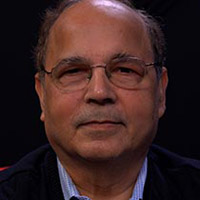Keys to Empowering Others

A common characteristic of many good leaders is the ability to delegate responsibility. One way that this can be done is by empowering others with the ability to also lead. Empowering someone else can be an excellent tool to achieve even greater success, both for the company and the individual. So how do you go about empowering someone else? What are some of the most important keys to successfully giving others power to achieve success and grow?
Empowering With Trust
I recently discussed this topic with Joel Peterson, Chairman of Jet Blue, and the Founding Partner & Chairman of Peterson Partners. Joel is also the Director of the Stanford GSB Center for Leadership Development and Research as well as the author of the 10 Laws of Trust. Joel explained some of the key aspects of truly empowering others. “I think that if you don’t empower people you’re not going to build high trust among them. Usually what that means is that you have to do it slowly. You give people a little bit of responsibility, you measure that, you talk about it and you give them more responsibility. The idea is you want to empower the organization as far out as you can; as deep into the organization as you can.”
The Role of Accountability in Empowering Others
Ultimately Joel told me that you want to figure out how to give people as much authority and power as you can. I then asked how accountability comes into play when it comes to empowering others. In other words, how do you go about measuring the success of those who you empower? According to Joel, some people feel that accountability or measuring results is counterproductive when you are trying to empower others. However, Joel feels that without accountability, true empowerment can’t really take place. “My view is if you aren’t measuring you really aren’t fully empowering them. People who don’t know what is being measured do not feel empowered. They do not feel trusted. So if you give somebody an assignment and you don’t let them know the metrics or measures being used they have not really fully been empowered. High trust organizations tend to be very clear about what’s being accounted for.”
Determining the Accountability
That led to my next question, which was essentially who should come up with the measurement or what is being accounted for: the person being empowered or the leader? Joel said he thinks it’s always best if both parties can work together to determine what the measurements are. However, there must be a clear view. “I think the leader’s job is to figure out what success is. You’re trying to figure out which peak are we climbing. How will we know when we have won? The job is to figure out what winning is, and then I think you can work with people in the organization and determine what’s the best route to the summit. You’ll find that people down in the organization know more than you do as the leader, so you want to joint venture those metrics with them, but you have to have a pretty good idea of what summit you’re climbing.”
Overcoming Failure
Lastly, I asked Joel what happens when a person falls short of the metric or measurement? “Failure is a preamble to success.” If you have that notion that really you don’t have to succeed at everything, then you sit down and talk about what went wrong, you alter course and then move forward. “If you fail because of a lack of effort that’s actually a much more serious problem than a lack of results.”
To view my full interview with Joel Peterson click here
Sheila Driscoll: The Billionaire Foundation
Sheila is the Managing Director at The Billionaire Foundation where she helps coordinate foundation research work and initiates new introductions between existing foundations and our research team.
Nancy Gale, Founder of JAMAH
Nancy Gale is an inspiring individual with a fascinating story of overcoming hardship and creating something beautiful out of the pieces…
Venktesh Shukla: His Journey into the VC World
Interview Transcript, Venktesh Shukla: His Journey into the VC World: Alan Olsen: Can you tell us a little about your background? Venktesh Shukla: I was born and brought up in India. I did bachelor’s in electrical engineering my sister was in US and she thought that every self-respecting electrical engineer should be in Silicon Valley so…
Henry Wong, Founder of Diamond Tech Ventures
Interview Transcript, Henry Wong, Founder of Diamond Tech Ventures: Alan Olsen: Welcome back I’m visiting here today with Henry Wong. He’s a venture capitalist here in Silicon Valley and the founder of Diamond TechVentures. Welcome to today’s show. Henry Wong: Thank you. Alan Olsen: Now you’ve done a lot in your career, but so for…




